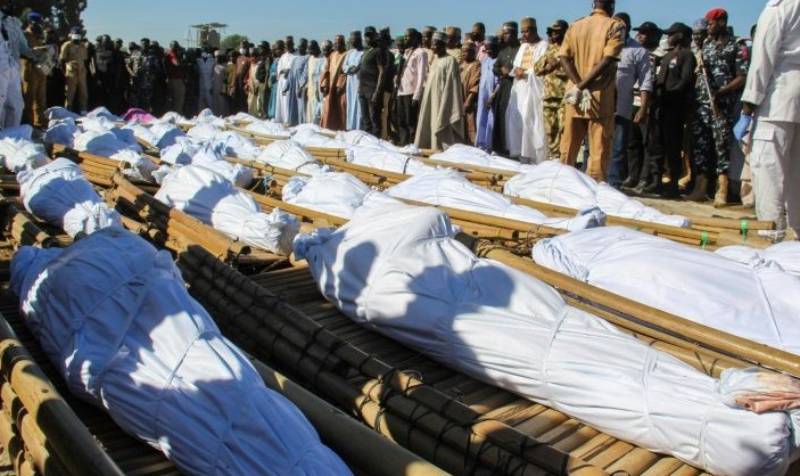×
The Standard e-Paper
Kenya’s Boldest Voice

Mourners attend the funeral of 43 farm workers in Zabarmari.
Nigeria has been stunned by the slaughter of scores of people on the weekend in the country's jihadist-ravaged northeast.